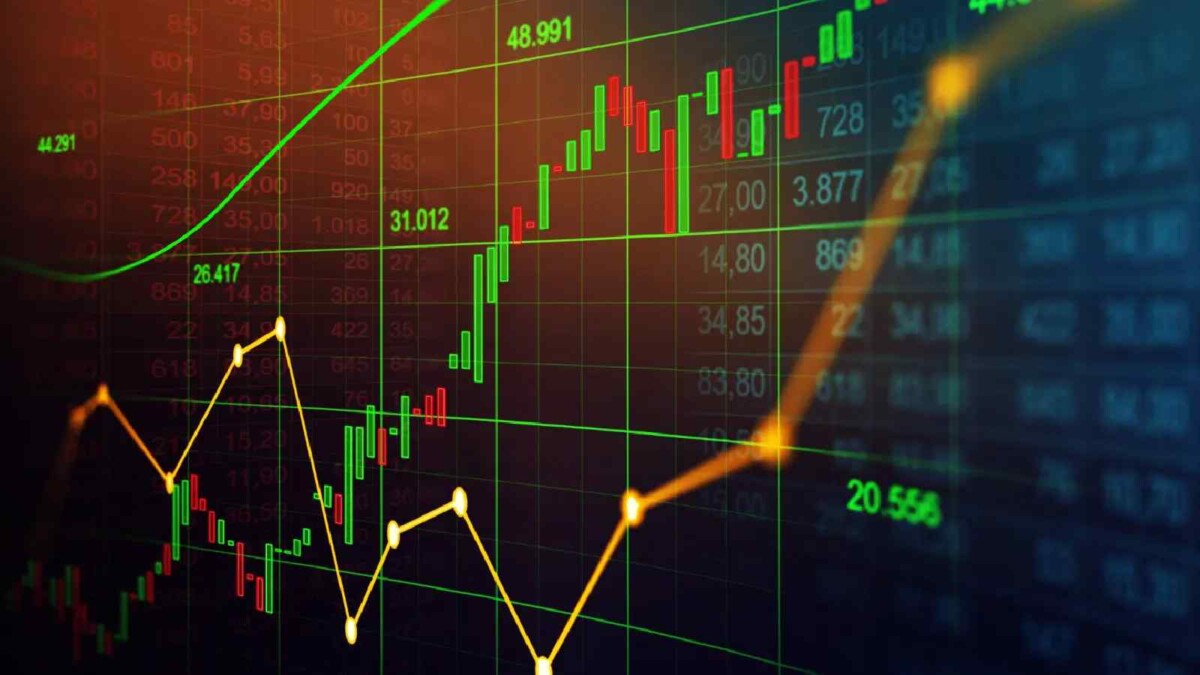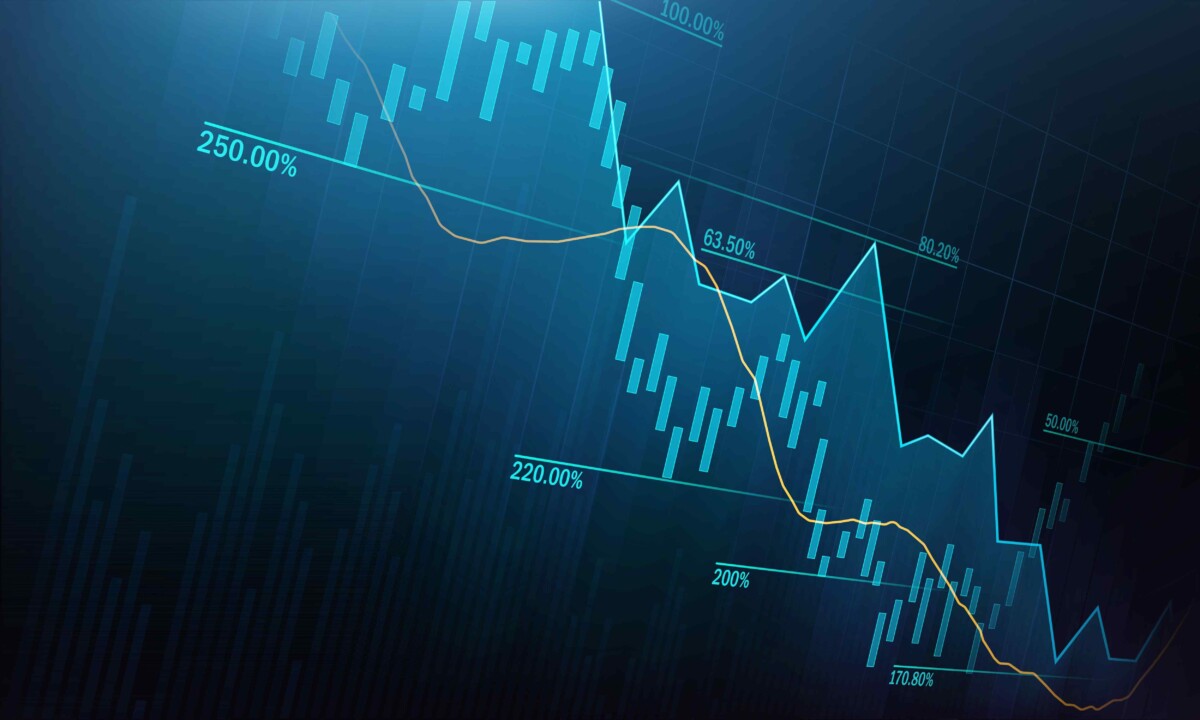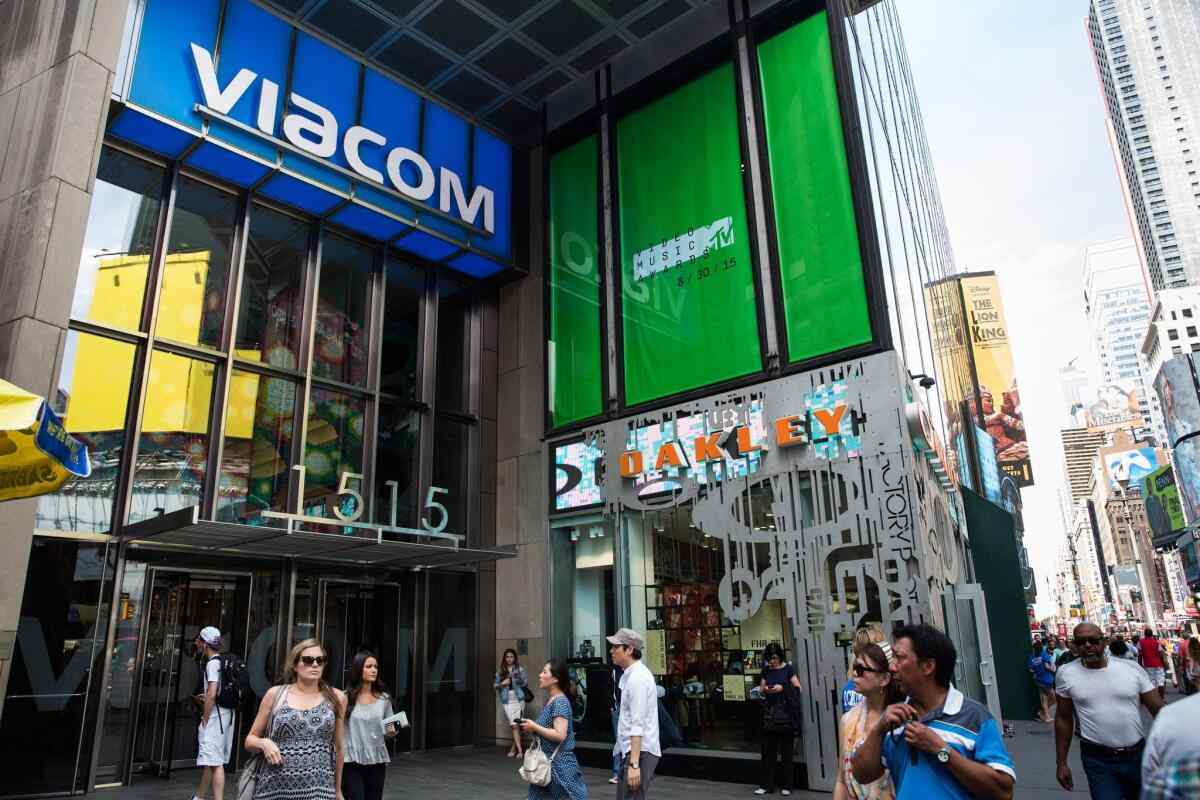Introduction
Concerns regarding market integrity and regulatory oversight have been sparked by the recent revelations of insider trading activities associated with ViacomCBS, which have reverberated throughout the financial sector. Investors are trying to make sense of what this revelation means for the larger financial system as more information about Archegos Capital and its founder, Bill Hwang, comes to light. The quick and steep drops in ViacomCBS and related stock prices have shown how vulnerable financial markets are and have cast doubt on the effectiveness of industry-wide risk management strategies. Given the uncertainty of the market, it is critical to analyze how the viac insider trading scandal has affected the company and how it may affect investors and other market players.
ViacomCBS Behind The Scenes Of Wall Street: Insider Trading
Archegos Capital And Bill Hwang’s Background
After being involved in a string of massive block trades that caused market turmoil, Bill Hwang’s family business, Archegos Capital Management, shot to fame. An experienced investor, Hwang rebranded his prior company, Tiger Asia, in 2012 before launching Archegos.
When it first opened its doors in 2001, Tiger Asia operated as a Hong Kong-based hedge fund specializing in investing in Asian securities. Hwang’s move from Tiger Asia to Archegos was a change to a family office structure, which he used to manage his own and his family’s money.
A History Of Insider Trading Allegations
Perpetual conflicts with the SEC have tarnished the Archegos Capital and Bill Hwang narrative. A watershed moment in Hwang’s financial career occurred in 2012, when he and his firm reached a settlement with the SEC regarding insider trading charges. The $44 million settlement resulted in heightened regulatory scrutiny and exposed Hwang’s past failures to comply with securities rules. This loss did not deter Hwang from continuing his financial operations; he went on to form Archegos Capital Management.
Relationship To Tiger Asia And Tiger Management
Hwang crossed paths with the famous hedge fund Tiger Management, run by Julian Robertson, before diving into Archegos. Tiger Management, where Hwang worked as an equities analyst, is likely to have had an impact on his approach to investing. After Tiger Management went bankrupt in 2000, Hwang set up Tiger Asia to continue his financial industry ventures. As a result of shifting market dynamics and regulatory environments, Hwang’s career underwent a metamorphosis with the evolution of Tiger Asia to Archegos.
Claims Of Insider Trading At Viacomcbs
The current controversy over ViacomCBS, set against this background of Hwang’s financial background, reveals a disturbing scenario of possible insider trading. Suspicions of market manipulation and illegal trading techniques arise due to the sudden drop in ViacomCBS shares and rumors linking the sell-off to Archegos’ liquidation of positions. The insider trading claims at ViacomCBS are still in the early stages, but the larger implications highlight the necessity for more openness and regulation in the financial sector. As the investigation into the ViacomCBS incident continues, it is clear that unfettered speculation can have disastrous consequences for markets.
The Effects Of Block Trades On The Market

Insider trading allegations connected to ViacomCBS have just surfaced, sending shockwaves across the complex web of Wall Street operations. Massive transactions carried out off-market, known as “block trades,” are central to this controversy. Institutional investors and hedge funds frequently engage in these trades, which have the potential to greatly impact stock prices and market sentiment. The activities of ViacomCBS’s family office, Archegos Capital, led by the infamous investor Bill Hwang, were closely related to these block trades.
Archegos-Related Block Trades And Their Description
Archegos Capital hatched a grand scheme that included block trading with ViacomCBS. The stock price of ViacomCBS dropped sharply due to these trades, which involved the large and unexpected sale of shares. Because of its aggressive investment tactics, Archegos used these block transactions to quickly unwind its positions, which caused a chain reaction in the market. The fact that these trades were part of a larger, more intricate web of financial dealings heightened concerns over openness and regulatory supervision.
Large-Scale Stock Declines, Like Viacomcbs And Discovery
The stock prices of ViacomCBS and other firms that were impacted by these block trades were severely harmed. Both Discovery and ViacomCBS had precipitous declines in their share prices, with the former falling by an unprecedented 27%. These abrupt and steep drops called into doubt the market’s steadiness, frightening both investors and analysts. The scale of these declines demonstrated the disproportionate impact that block trades may have, increasing volatility and undermining investor faith.
Investors Worry About Downgrades And Volatility
Wells Fargo downgraded ViacomCBS following the insider trading incident, adding to the company’s turmoil. Worries over the company’s financial stability and future prospects were already high before this rating. Investors, who were already anxious because of the market chaos, had to deal with even more volatility and uncertainty. Market players were cautious due to the significant specter of more downside risk.
When this most recent insider trading scandal blows up, it will have repercussions well beyond Wall Street. A more transparent and accountable financial system is necessary, and the ViacomCBS incident is a sobering reminder of the risks associated with opaque financial practices. It highlights the need of regulators in preventing damage to investors and maintaining a fair market. After this disaster, everyone involved in the financial system ought to take stock of what they’ve learned and work even harder to be honest and fair. Joint vigilance and proactive steps are the only means to prevent such catastrophes from happening again and to restore trust in the markets.
Block Trades And Market Impact

Archegos-Related Block Trades And Their Description
Archegos Capital Management investment fund has largely linked the current turbulence in the financial markets to a series of block trades conducted by them. These block trades, involving massive amounts of shares, have sent shockwaves across the market, resulting to substantial falls in the stock prices of multiple firms. Archegos, founded by Bill Hwang, has been at the center of attention due to its involvement in these trades, sparking concerns about the stability and integrity of the financial system.
Notable Drops In Stocks Such As ViacomCBS And Discovery
Among the companies affected by the block trades organized by Archegos, ViacomCBS and Discovery experienced particularly severe decreases in their stock values. On Friday alone, shares in ViacomCBS and Discovery dropped by roughly 27% apiece, representing a huge and rapid decrease in their market value. This abrupt drop caught many investors off guard, generating questions about the fundamental reasons for such significant changes in these equities. The scale of these decreases emphasized the outsized impact of the block trades on individual companies, showing the vulnerability of even well-established corporations to external market pressures.
Investors Worry About Downgrades And Volatility
In response to the turbulence generated by the block trades, several investment companies reduced their ratings on ViacomCBS, further compounding the negative attitude surrounding the corporation. Wells Fargo, for instance, downgraded ViacomCBS on Friday, expressing mounting concerns about its financial health and future prospects. This downgrading, coupled with the significant decrease in its stock price, added to the ongoing volatility in the market, stoking anxiety among investors about the possibility for greater downside risk. The unprecedented nature of these occurrences has left many market players wrestling with uncertainty and worry, as they try to assess the consequences for their investment portfolios and broader market stability.
Banks Affected And Possible Damages
Key Financial Institutions’ Role
Big names like Goldman Sachs, Morgan Stanley, and Deutsche Bank were heavily implicated as the Archegos Capital story unraveled. Archegos relied on these banks and other financial organizations as prime brokers, who helped it trade and gave it leverage. In the aftermath, when Archegos had margin calls and had to sell off its holdings, they were deeply involved because of this.
Reporting On Goldman Sachs’s Liquidation Scale
Reportedly, in order to unload Archegos’ assets, Goldman Sachs—a key player in this episode—conducted massive block trades. Some reports indicated that Goldman Sachs sold equities worth more than $10 billion during their massive liquidation. Prior to Friday’s opening of the U.S. market, Goldman sold approximately $6.6 billion worth of shares in companies such as Baidu Inc., Tencent Music Entertainment Group, and Vipshop Holdings Ltd. Additionally, they sold shares in ViacomCBS, Discovery, Farfetch, iQIYI, and GSX Techedu, valued at $3.9 billion.
Goldman Sachs’s haste in trying to reduce its exposure to Archegos was shown by the quantity of liquidation, which also demonstrated the potential market impact of such massive actions. The already unstable situation was made even worse by the sudden liquidation of such large holdings, which most certainly led to the steep declines in the affected stocks.
The Link Between Archegos And The Possible Loss At Nomura Holdings Inc
The Archegos disaster also befell Nomura Holdings Inc., a formidable Japanese banking institution. One of Nomura’s U.S. companies could lose $2 billion, indicating the extent of the damage caused by its ties to Archegos. Although the exact amount of Nomura’s losses is still not entirely clear, it is clear that they were substantial enough to warrant immediate concern and attention.
The fact that Nomura was associated with Archegos shows how far-reaching the consequences of the fund’s demise are, affecting more than just the banks that enabled its trades. An eye-opening illustration of the risks of lending to high-risk clients and the far-reaching consequences of bad bets, the possible $2 billion loss is a sobering reminder of this.
Reflection And Projection

How Market Participants Feel And What They Worry About
There has been a surge of activity and long-simmering anxiety in the financial sector in response to the revelation of insider trading operations associated with ViacomCBS. The scale of the occurrence and its consequences for market integrity have shocked market participants, from ordinary investors to institutional institutions. Disclosure of such actions causes investors to lose faith in the integrity of financial markets and makes them more skeptical of their value. Everyone is on edge because they think similar insider trading scandals could be hiding elsewhere, casting doubt on the ecosystem as a whole. Furthermore, the participation of notable institutions and public personalities such as Bill Hwang heightens the anxiety by casting doubt on the effectiveness of industry-wide risk management strategies and regulatory monitoring.
Forecasts Of Short-Term Market Volatility And Its Effects
Market watchers are preparing for a time of increased volatility and uncertainty in the near future as the ViacomCBS insider trading scandal continues to shake Wall Street. The findings’ impact on the market has been devastating, demonstrating once again how vulnerable financial markets are to unexpected shocks. Experts disagree on whether the initial shock will cause a brief calm or whether there will be aftershocks that last for weeks or months. How quickly and forcefully market players and regulatory bodies react to the situation will determine the severity of the consequences. Yet, general consensus holds that the scandal will have far-reaching consequences, dampening investor optimism and dragging down stock prices in a number of industries.
What We Can Learn From This Incident And Its Possible Impacts
The ViacomCBS insider trading scandal has broad ramifications for the banking sector and should prompt a review of current approaches to risk management and regulatory policies. Essentially, this incident shows how badly the securities trading industry needs more openness and responsibility, especially when it comes to the disclosure of insider information. Market players should take this as a sign that they need to step up their game in the fight against illegal activities and improve their internal controls to forestall future breaches of this kind. Institutional investors, prime brokers, and hedge funds will all need to reevaluate their relationships in the wake of the scandal, with a focus on risk mitigation and due diligence taking center stage. The ViacomCBS insider trading scandal shows how dangerous greed can be and how important it is to keep our capital markets honest. It should serve as a lesson to those working in finance.
Conclusion
The viac insider trading scandal has tainted the financial markets and brought up valid concerns regarding the integrity of the market and the supervision provided by regulators. Market participants and investors must maintain vigilance against illegal activities and adhere to the principles of openness and responsibility as investigations progress and consequences echo across Wall Street. In order to create a market environment that is more resilient and trustworthy for all stakeholders, the financial industry can strive to learn from the lessons of this scandal.
Frequently Asked Questions
1. How Does Viac Insider Trading Pertain, And What Does It Mean In General?
Buying and selling a security based on substantial, non-public information about the company is known as insider trading. Claims that Archegos Capital and other investors in ViacomCBS participated in insider trading that caused the stock price to fluctuate significantly are at the heart of the scandal.
2. Archegos Capital Was Involved In The Insider Trading Scandal; Who Is Bill Hwang?
In the ViacomCBS insider trading scandal, Bill Hwang’s firm, Archegos Capital Management, was one of several family offices that were implicated. Some worry that Hwang may have undue influence over the markets due to his history of involvement with insider trading accusations and his ties to other hedge funds.
3. How Will The Insider Trading Scandal Impact Related Stocks, Such As Viacomcbs?
Companies like ViacomCBS and Discovery saw significant drops in their stock prices after the insider trading scandal came to light. The market’s general attitude toward these companies and their potential long-term effects are currently being considered by investors.
4. In Light Of The Viac Insider Trading, How Are Regulatory Bodies Reacting?
It is probable that the Securities and Exchange Commission (SEC) and other regulatory bodies will initiate investigations into the claims of insider trading involving ViacomCBS. These probes are an effort to identify any wrongdoing in the trading of securities and bring those guilty to justice.
5. What Did The ViacomCBS Insider Trading Scandal Teach Us?
Financial market openness, honesty, and responsibility are highlighted by the ViacomCBS insider trading controversy. It shows how important it is to have strict enforcement measures and strong regulatory oversight to stop insider trading. Furthermore, the incident highlights the significance of performing comprehensive due diligence and risk evaluations prior to investing in securities.


